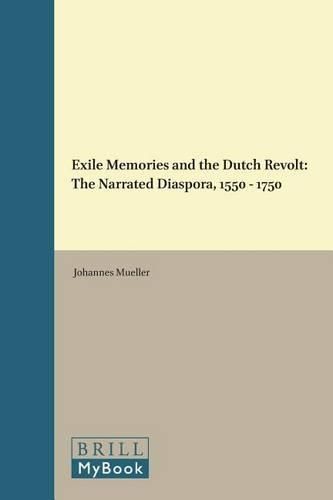Readings Newsletter
Become a Readings Member to make your shopping experience even easier.
Sign in or sign up for free!
You’re not far away from qualifying for FREE standard shipping within Australia
You’ve qualified for FREE standard shipping within Australia
The cart is loading…






The Dutch Revolt (ca. 1572-1648) led to the displacement of tens of thousands of people. In Exile Memories and the Dutch Revolt, Johannes Muller shows how migrants and their descendants in the Dutch Republic, England and Germany cultivated their Netherlandish heritage for more than 200 years. Memories of war and persecution shaped new religious and political identities that combined images of suffering and heroism and served as foundational narratives of newcomers.
Exposing the underlying narrative structures of early modern exile memories, this volume shows how stories about the Dutch Revolt allowed migrants to participate in their host societies rather than producing a closed and exclusive diaspora. While narratives of religious persecution attracted non-migrants as well, exile networks were able to connect newcomers and established residents.
$9.00 standard shipping within Australia
FREE standard shipping within Australia for orders over $100.00
Express & International shipping calculated at checkout
The Dutch Revolt (ca. 1572-1648) led to the displacement of tens of thousands of people. In Exile Memories and the Dutch Revolt, Johannes Muller shows how migrants and their descendants in the Dutch Republic, England and Germany cultivated their Netherlandish heritage for more than 200 years. Memories of war and persecution shaped new religious and political identities that combined images of suffering and heroism and served as foundational narratives of newcomers.
Exposing the underlying narrative structures of early modern exile memories, this volume shows how stories about the Dutch Revolt allowed migrants to participate in their host societies rather than producing a closed and exclusive diaspora. While narratives of religious persecution attracted non-migrants as well, exile networks were able to connect newcomers and established residents.